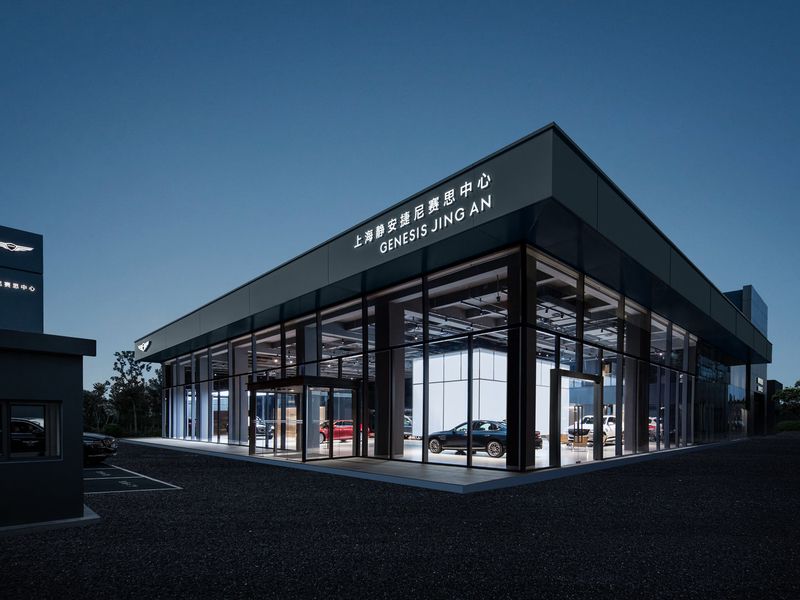
SHANGHAI – While electric-vehicle startups continue to follow Tesla Inc. in opening direct stores, several foreign automakers have taken a different approach to enabling direct sales for new brands or new products.
Adopting a so-called “agent model,” select dealers serve as a co-investor and sales agent, rather than retailers, to assist a brand in selling vehicles and providing services to customers.
Hyundai Motors Group is the latest global automaker to adopt the approach in introducing the young luxury brand Genesis in China.
Genesis this year participated in the Shanghai auto show and opened two “studios” – experience centers – in central Shanghai and the southwest China city of Chengdu.
Last month, it opened a full-service store on Kangning Road in the northern section of Shanghai.
The store is jointly owned by Genesis and Greenland, a Shanghai-based dealership group which the Korean luxury brand selected based on customer satisfaction with its stores under other luxury brands.
More importantly, Greenland also operates as the sales agent, Genesis China CEO Markus Henne told Automotive News China when opening the store on Oct. 21.
Greenland is responsible for operations such as consultation, lead generation, vehicle delivery and aftersales, and gets paid by commission.
Genesis owns all vehicle stocks and inventory.
“You can think of the agent model as an in-between the dealership model and the direct-sales model, or the best of both worlds,” Henne said.
The agent model requires less upfront investment compared to the direct sales model adopted by Tesla and many Chinese EV startups.
While more asset-heavy than the traditional wholesale-retail sales model, the agent model allows a brand to own stock, which in turn enables the brand to implement a one-price strategy on all vehicles.
Thus, car shoppers don’t have to go to different dealerships and negotiate, while still not sure whether they have secured the best price, Henne noted.
In addition to inventory, Genesis also controls the vehicle transaction process and owns all customer data.
By contrast, under the wholesale-retail model, once cars are shipped to dealerships, a car brand loses much of the control to the dealer.
Genesis, which markets the G70 sport sedan as well as sedan and SUV versions of the G80 in China, expects to reach more key local cities with studios, the agent sales model and online sales.
“The agent model puts a lot of assets on our own books, but as a young brand we feel it is important to take this control to guarantee the customer experience,” Henne said.
Three other global brands have also embraced the agent model in China.
Volkswagen in March opened the first batch of stores under the banner of its ID family of electric vehicles.
In July, Ford launched the first of five stores under the Mustang Mach-E in China. It plans to boost the number of such stores for the locally produced electric crossover to 25 by the end of the year.
In September, Audi opened the first six stores with local agents for the elongated A7 gasoline sedan — the first Audi model assembled at VW Group’s joint venture with SAIC Motor Corp.
More global players are expected to follow suit though the merits of the new model have yet to be gauged vis-à-vis the traditional dealership model. But for many upstarts and established automakers, it can help lower the cost of entering the giant and fiercely competitive China market.

